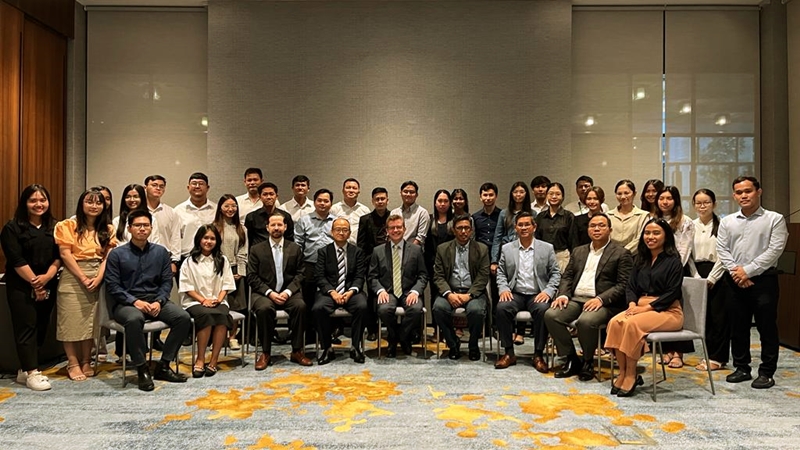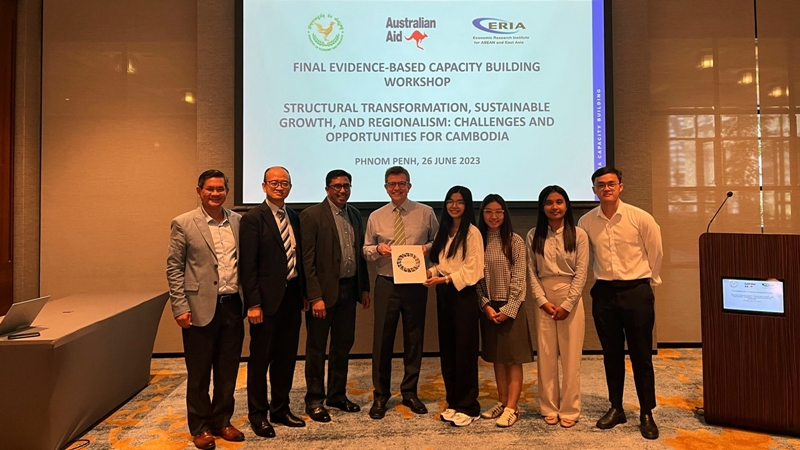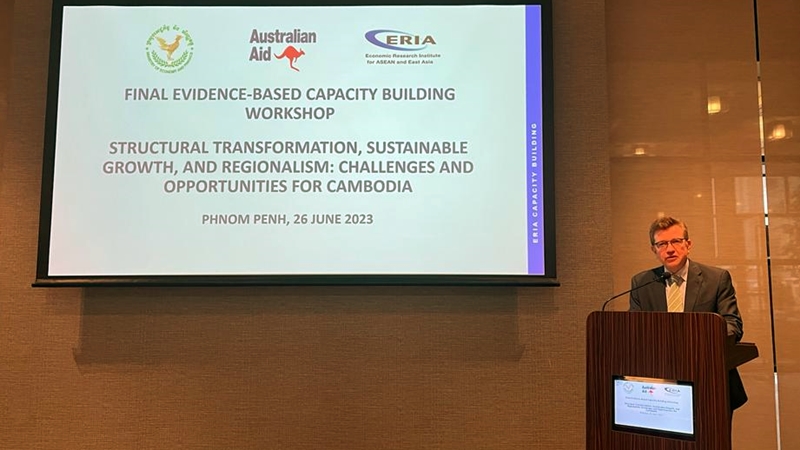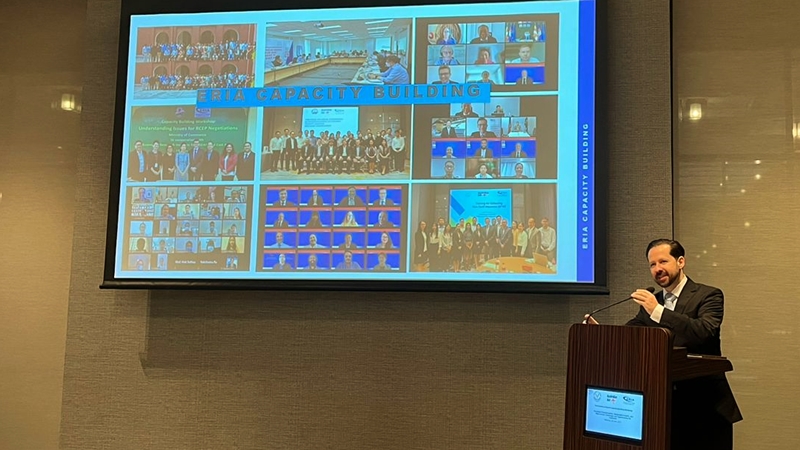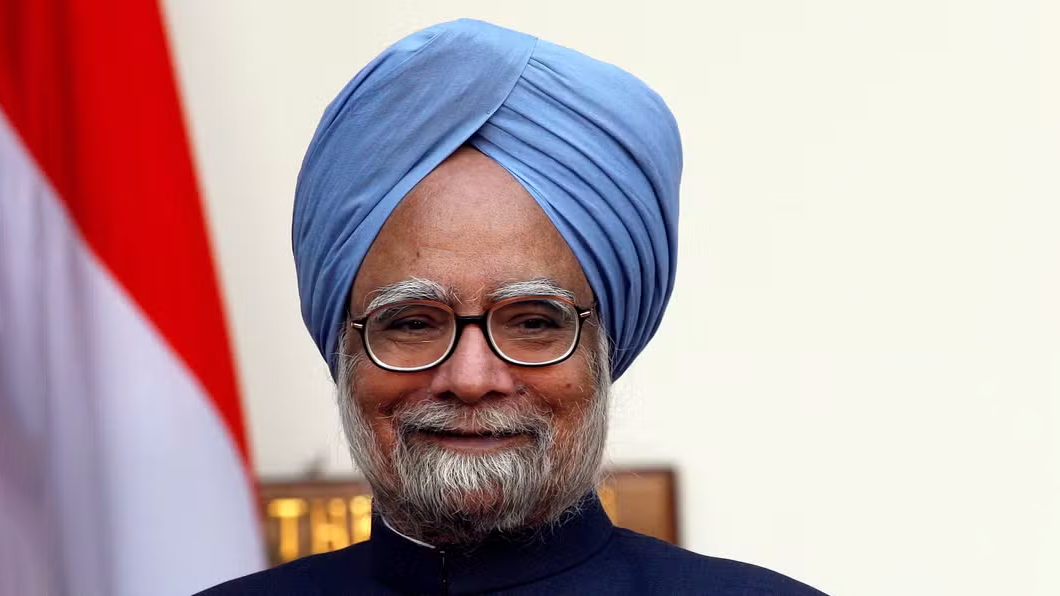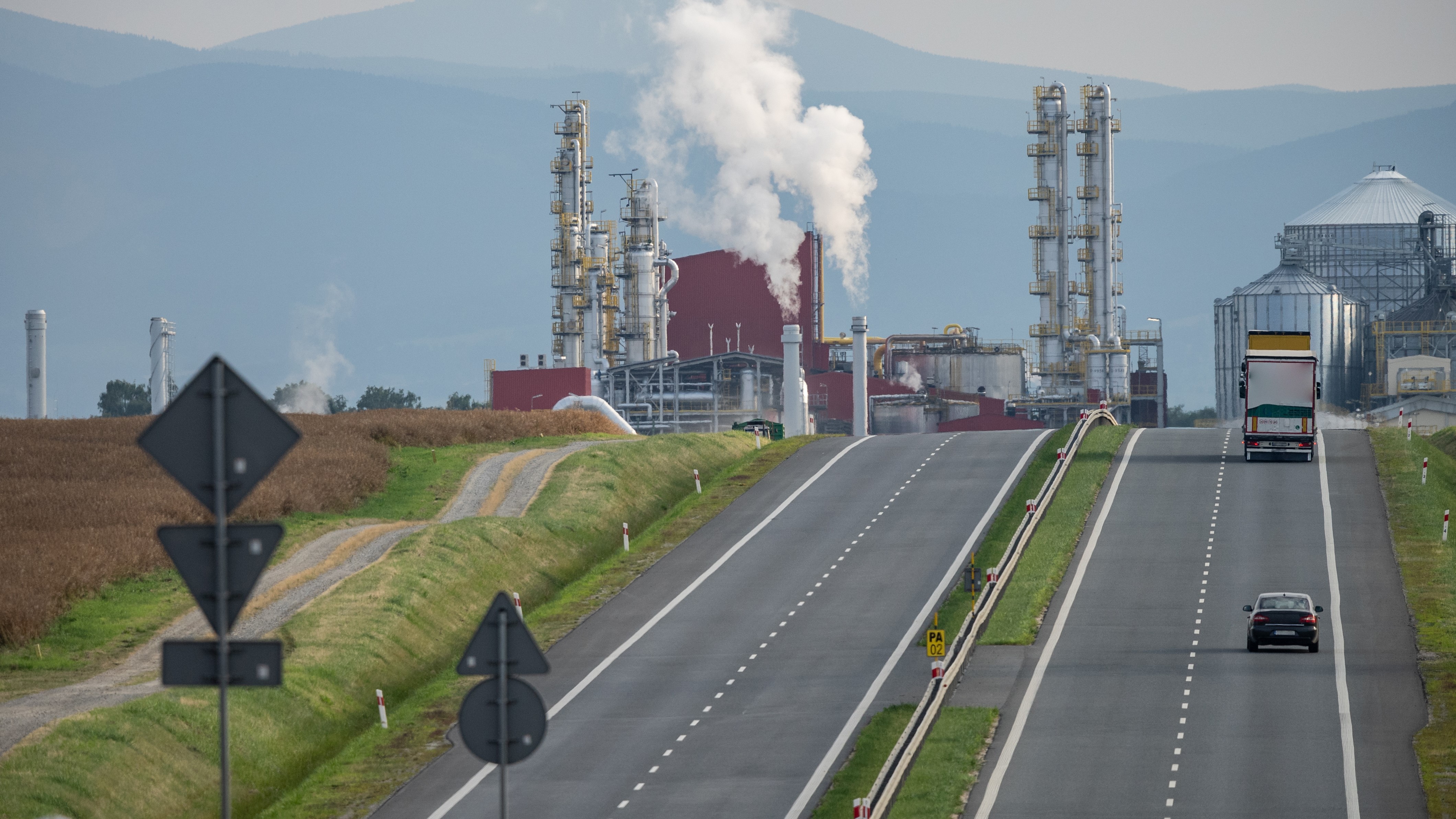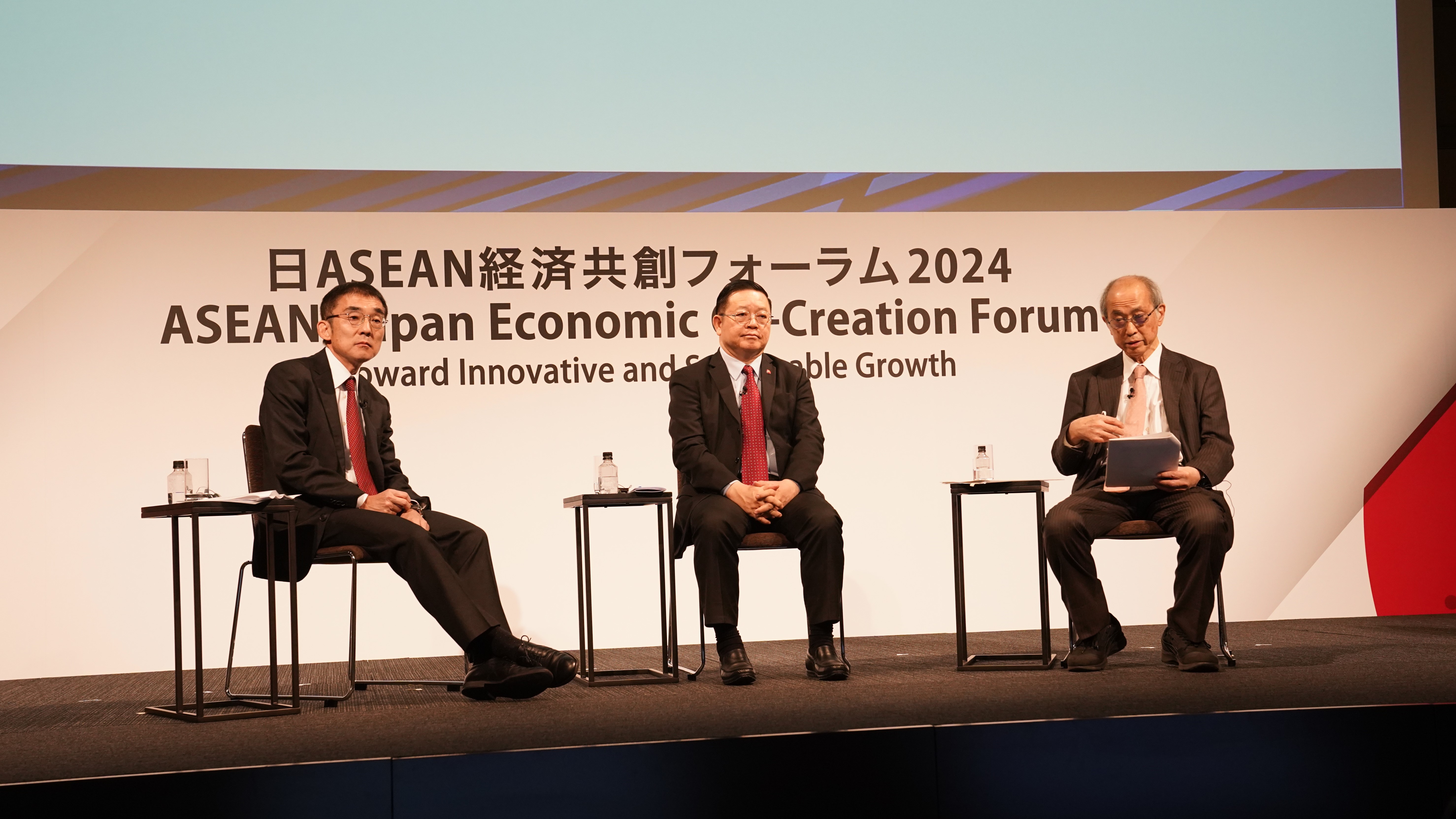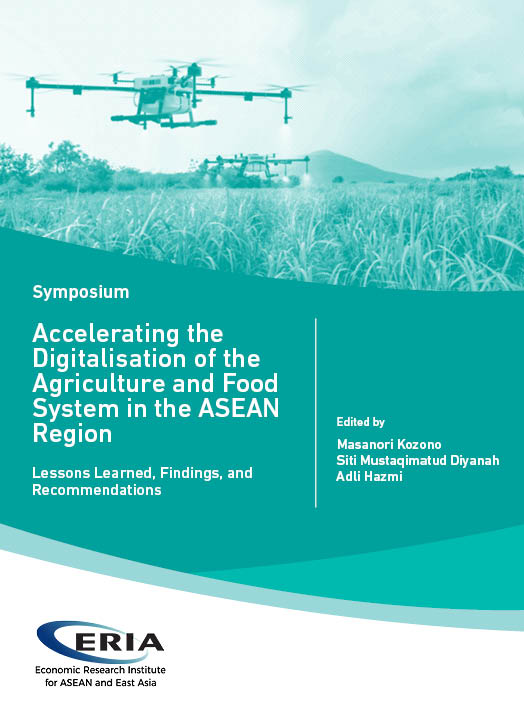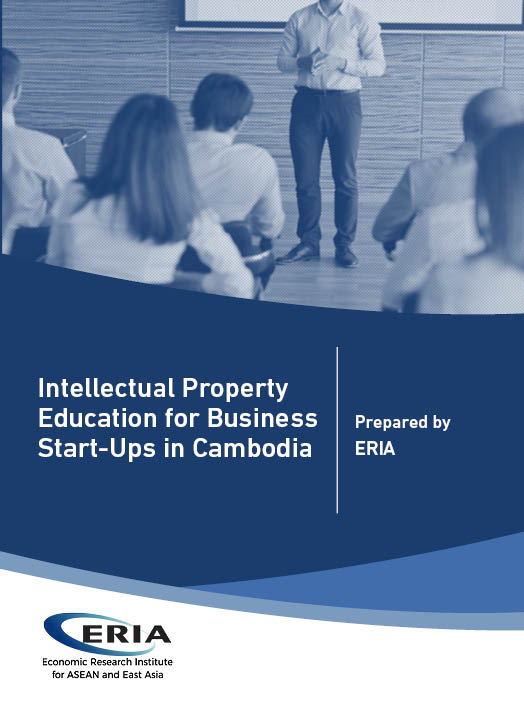Cambodias Commitment to Trade Integration and Sustainable Growth: Insights from Capacity Building Workshop
Date:
26 June 2023Category:
NewsTopics:
Cambodia, Capacity Building, RCEPShare Article:
Print Article:
Phnom Penh, 26 June 2023: The Regional Comprehensive Economic Partnership (RCEP) trade agreement, along with several bilateral free trade agreements (FTAs), signifies Cambodia’s commitment to trade liberalisation and fostering regional economic integration within a rules-based multilateral trading system. To fully unlock the potential of these agreements, policymakers must align regional and domestic policies based on an understanding of the implications of FTAs and make necessary adjustments to enhance production efficiencies, domestic capacity, and investment. This ongoing process requires continuous adaptation of institutions.
On 26 June 2023, the Final Evidence-Based Capacity Building Workshop ‘Structural Transformation, Sustainable Growth, and Regionalism: Challenges and Opportunities for Cambodia’ concluded the series of policy modeling workshops held in March and May 2023. Co-organised in partnership with the Ministry of Economy and Finance (MEF) of Cambodia and with support from the Australian Government, the workshop brought together 40 participants, including officials from Cambodia’s Ministry of Commerce (MOC), Ministry of Labour and Vocational Training (MLVT), General Department of Policy (GDP), and General Department of Customs and Excise of the Ministry of Economy Finance.
The workshop commenced with Dr Chhau Somethea, Deputy Director General at GDP of MEF, highlighting the importance of deepening economic integration through FTAs and the necessity of capacity building for forward-looking institutions focusing on human resources and industries. Mr Andreas Zurbrugg, Deputy Head of Mission, Australian Mission to Cambodia, emphasised the workshop’s significance in supporting Cambodia’s progressive economic transformation, shifting from an agricultural base to greater prominence in manufacturing and services, driven by globalisation, urbanisation, and technological innovation. Mr Jeremy Gross, Director of Capacity Building of ERIA, underscored the importance of evidence-based policy design and institutionalising practices that strengthen ASEAN economic integration.
Following the previous workshop, participants conducted research in groups based on the workshop’s theme. Each of the nine groups presented on the following topics:
- State-linked Entity and Structural Transformation
- The Importance of Global Value Chain (GVC) Hub of Tourism and Agriculture in the Context of Cambodia
- GVC Network and the Integration of the Multi-Polar Regionalisation of Cities in Cambodia
- Future of Transportation in Phnom Penh: Adopting Rail Plus Property Model
- Unveiling the Potential of Agricultural Agglomeration in Cambodia
- The Relationship between Urbanization and GVC –How Cambodia can gain benefits from Urbanization and GVC
- Human Capital Development and Structural Transformation: Opportunities
- Forecasting the Demand for Skills, Case: 2 New Airports in Cambodia
- How to Maximize the Utilization of Cambodia’s FTAs
The team presenting on ‘Future of Transportation in Phnom Penh: Applying Rail Plus Property Model’ received the top prize. Prof Shandre Mugan Thangavelu of the Institute of International Trade, University of Adelaide, and Head of the Jeffrey Cheah Institute on Southeast Asia, Sunway University, Kuala Lumpur, facilitated the workshop.
